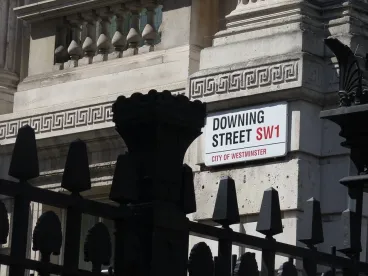Alongside the almost complete reversal of recent cuts in the main rate of corporation tax (returning it to 26% by 2020-21 – a rate not seen since 2011 or, rather, the time of the last UK Labour government), the proposal to introduce a so-called ‘Robin Hood’ tax on financial derivatives (a proposal mired by its own complexity in Europe and described in the past by the Labour Mayor of London, Sadiq Khan, as “madness”), and promises to explore new revenue raising options (such as a possible tax on land values), it is the proposals in the Labour Party Manifesto 2017 for income and employment taxes that are most eye-wateringcatching.
Income tax will not, Messrs Corbyn and McDonnell promise, rise for 95% of taxpayers. In addition, there will be no rise in personal National Insurance Contributions (NICs). So, in England and Wales at least, it will be the top 5% of taxpaying adults (i.e. the roughly 1.5m individuals who already contribute something approaching almost half of the current UK’s income tax takings) who will be asked to ‘contribute a little more’. In the main, that contribution will come from dropping the threshold for the additional rate of income tax (45%) from £150,000 to £80,000 while those with earnings over (a very precise) £123,000 paying tax at a [re-introduced] 50% rate.
These provisions alone will (it is hoped at least, assuming a certain degree of stability in any behavioural reaction) raise some £6.4bn per year by 2021-22. In addition, employer’s paying ‘excessive’ salaries will face the ‘Excessive Pay Levy’ (or, if you prefer, ‘Fat Cat Tax’), initially set at 2.5% of (as yet undefined) ‘total compensation’ in excess of £330,000 but rising to 5% of ‘total compensation’ over £500,000, and all of which will add another £1.3bn to the Treasury’s coffers.
Such proposals have, perhaps predictably (and/or understandably), set alarm bells ringing in business circles, already concerned by the uncertainty caused by Brexit and desperately desiring stability in the tax system in a fluid economic environment, because of the possible adverse impact they might have on the ability of UK firms to attract and retain talent.
But, from a pure tax policy perspective, the problems run even deeper.
On the one hand, the reaction of the highest earners is unclear but it is conceivable that directly increasing the headline rates of tax on those best placed to plan and structure around, or simply move out of, the reach of the increased charges, could prove to be counter-productive. This makes Labour’s calculations unstable, could result in the need for additional anti-tax-avoidance measures (and so more complexity in the UK’s tax code) and leave a Labour government disappointed by the tax revenue it actually collects.
On the other, the Labour Party have missed a golden opportunity to address one of the UK tax system’s most bizarre features: the arbitrary 60% effective rate (the highest rate borne by any group of earners in the UK) levied on those earning between £100,000 and, Labour’s specifically chosen, £123,000 figure which is caused by the manner in which the personal allowance is withdrawn. By leaving the mechanism for withdrawing the personal allowance in place, Labour’s policy would not only see the effective rate of income tax between £100,000 and £123,000 actually rise to a massive 67.5% but also, perhaps more fundamentally, entrench an element of illogical income tax unfairness… an open-goal, astonishing missed when included as part of a Manifesto apparently built on the principle of fairness in the interests of the many and not the few.
If Labour had sought establish a highest marginal income tax rate of 50% while abolishing the current Government’s effective 60% top rate they just might have won a few more friends.




 />i
/>i
